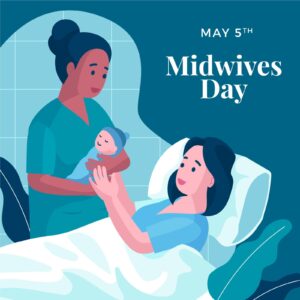Courses for Midwives
Communication in right way is crucial for midwives. Our English for Midwives gives the ability and confidence to interact with expectant mothers in an efficient manner and assist them during the difficult times of labour and delivery!
The Midwifery Programme at Oxons College is designed for individuals who are passionate about supporting women and families through pregnancy, childbirth, and postnatal care, while also developing strong English communication skills for clinical settings. This course provides a comprehensive foundation in maternal health, covering topics such as antenatal care, labour support, newborn wellbeing, and reproductive health. Alongside clinical training, students receive targeted instruction in English for healthcare, focusing on patient interaction, medical terminology, and professional documentation. The programme is ideal for international learners and those new to the UK healthcare system, helping them build confidence in both midwifery practice and spoken English. With a focus on compassionate care, cultural sensitivity, and effective communication, graduates are prepared to work in diverse maternity environments and contribute meaningfully to the well-being of mothers and babies.
Who Is This Course For?
The Midwifery Programme with English at Oxons College is designed for individuals who are passionate about maternal care and want to build both clinical and communication skills for working in UK healthcare settings. It is especially suitable for international students and newcomers whose first language is not English, women returning to education or transitioning into healthcare careers, and learners preparing for roles in maternity support or further midwifery qualifications. The course supports those at a beginner or intermediate level of English, helping them gain confidence in patient interaction, medical terminology, and professional documentation while learning the essentials of midwifery practice.
Ideal for those looking to progress to a higher level of proficiency, leading to a higher position in the company. Gain the Language and Communication knowledge needed to work effectively in health care. Health care is a field with high standards and increasing regulatory oversight, meaning that those working within it or aspiring to must demonstrate they have the knowledge required to operate safely, effectively and fairly.
Fees and Funding
Total payable £1249
The fee includes printed study materials and logistic supports.
Course Outline
Assessment method: Certificate based on a set standard individual assessment
Level value: CEFR L2
Guided learning hours (GLH): 250
Tangible Outcome: This Course contains information about Midwifery that will acquaint the reader with the specialised words of this field
Mode of Teaching Learning: In-Person/Online/Blended
What does this course cover?
Midwifery with English – Detailed Course Contents
1. Maternal Health Foundations
- Introduction to midwifery roles and responsibilities
- Stages of pregnancy and antenatal care
- Labour and delivery support techniques
- Postnatal care and maternal wellbeing
- Breastfeeding guidance and newborn nutrition
2. Anatomy, Physiology & Reproductive Health
- Female reproductive system and hormonal cycles
- Foetal development and birth processes
- Common complications and emergency procedures
- Family planning and contraception education
3. Clinical Skills & Patient Care
- Monitoring vital signs and maternal assessments
- Safe handling and hygiene practices
- Pain management and emotional support during labour
- Record keeping and care planning
- Working with multidisciplinary teams
4. English for Midwifery Practice
- Medical terminology and maternity vocabulary
- Communicating with patients during assessments and procedures
- Writing care notes, birth plans, and discharge summaries
- Role-play scenarios: antenatal visits, labour support, postnatal check-ups
- Understanding hospital signage, forms, and instructions
5. Communication & Cultural Sensitivity
- Building trust with patients and families
- Supporting women from diverse backgrounds
- Active listening and empathy in maternity care
- Language for reassurance, consent, and informed decision-making
6. Professional Development & Ethics
- NHS standards and midwifery code of conduct
- Confidentiality and safeguarding practices
- Reflective practice and continuous learning
- Preparing for interviews and career progression
7. Placement Preparation & Simulation
- Observational skills in maternity settings
- Simulated birth scenarios and emergency drills
- Placement portfolio development
- Health and safety in clinical environments
Tutorial Support
Besides regular lesson times, off-lesson hours support is also available at an agreed-upon time.
